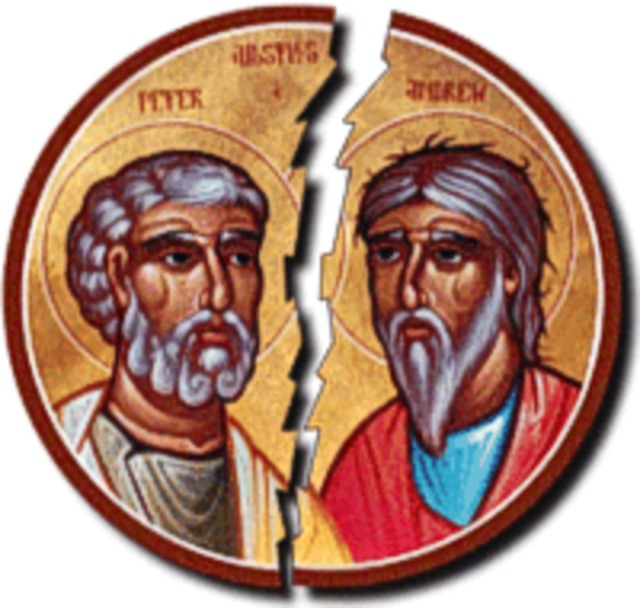The Eastern Orthodox Church, of which I am a member, has had a schism within itself during this past fall. Patriarch Kirill of Moscow broke all ties with the Patriarch Bartholomew of Constantinople over a land dispute in Ukraine. Opinions on this event within the Orthodox community have been split, and the debate continues. Both Patriarchs have been accused with acting on behalf of world political entities and even ties with intelligence agencies. I knew since the event that it would take a while for me to form a coherent opinion on this issue. It has been about two months, and I remain neutral. I would like to bring to attention the implications of this schism: what it says about the world today, and what it means for today’s Christians, whether Orthodox or not.
Ahead of all things, this fall has made clear the sad reality that people today are divided more by geopolitical allegiance than by religious belief. Orthodox Christians who align with Putin in world politics almost universally sided with the Moscow Patriarch. Orthodox Christians who align with the Western elite in world politics almost universally sided with the Patriarch of Constantinople. The former accused Bartholomew of agency for the CIA, and the latter accused Kirill of agency for the Russian government. To add sticks to the fire, I inevitably came to realization that the real reason that I am neutral on the subject is because I am neutral on many of these geopolitical issues. There is clearly an investment of our church members in the supposed struggle between Russia and the West that overrides the passion for Orthodoxy itself.
But it is not only Orthodox church members, and it is not only geopolitics. It is becoming increasingly rare for a socially conservative Catholic to have more in common with a socially liberal Catholic than with a socially conservative Protestant. Some Protestant denominations, such as Lutherans, have even had schisms over political views that allow the Missouri Synod to have more in common with other conservative Protestants than with the ELCA. Many Protestant denominations have explicitly made this split over politics, while the apostolic churches remain awkwardly whole.
This situation, if not a clear crisis of Christianity, must at least be brought to attention. It may be the case that the issues of abortion, gay marriage, and traditional values are replacing the roles of the Filioque, Sola Scriptura, and the primacy of the Pope. If we ask where our emotional investment really lies it is becoming rare to choose the theological issues as an honest answer, whether one is liberal, conservative, Orthodox, Catholic, or Protestant. Social issues are the same for those invested in the faith today as the theological issues have been for those hundreds of years ago. Furthermore, a growing number of people can afford to worry about these theoretical concepts as opposed to their own physical survival. Many Americans today are beginning to even say that those opposed to them on social issues are “not real Christians.”
All these factors send us into a very odd future of Christianity. I encourage thoughts from both the comment section and future blog posts on this topic in order to establish a clearer conclusion.


Leave a Reply